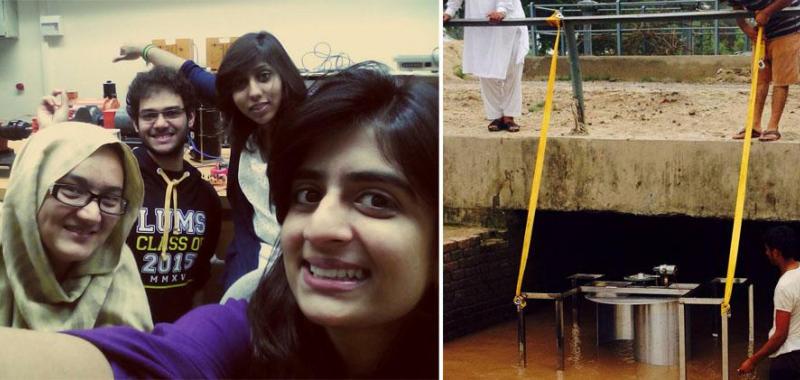
LUMS Syed Babar Ali School of Science and Engineering’s (SBASSE) project Hydrokinetics powered Irrigation Network Automation (HINA) has been selected for the final round of ICCG Best Climate Practices Contest. The initiative started as a sequence of senior year projects at the LUMS SBASSE Electrical Engineering department, Energy and Power Systems Cluster in collaboration with the LUMS Water Information and Technology (WIT) Center, under the guidance of Professors Nauman Ahmad Zaffar and Abubakr Muhammad. The team of graduate engineers Rabiya Farooq, Syeda Qurat Ul Ain Akbar, Sana Noor and Muhammad Ammar Bharmal continued work during the summer holidays in 2015. Their project has been recognised among the world’s top 45 projects in the field of climate change, renewable energy solutions and water management by the ICCG Best Climate Practices Contest. Pakistan has an extensive canal network which irrigates 75% of its farmlands. The lack of proper monitoring and control system causes the farmers to face severe water scarcity problems. The irrigation network is manually controlled which makes the system extremely inefficient – according to some estimates the system losses are around 55%. HINA, the designed prototype hydrokinetics system, harvests energy from the slow moving water bodies, such as canals and rivers, and uses it to operate the motors for the automation of canal gates. It is a smart and sustainable solution which provides a sustainable power solution for control of irrigation network by harnessing the inherent potential of the same source it is controlling. HINA provides a cost effective and sustainable base unit which is replicable, scalable and requires minimal infrastructure for deployment.




